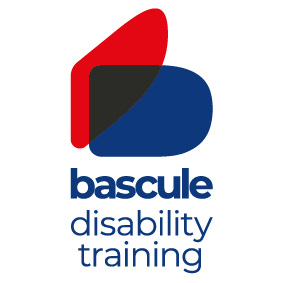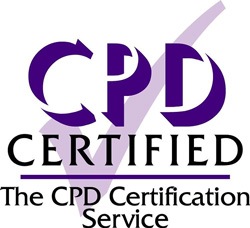Bullying- Avoiding a culture of acceptance

If you’ve ever experienced workplace bullying, it’s likely you were immediately aware of what was happening, but it isn’t always that clear cut. Sometimes, if a workplace has a culture that is tolerant towards a certain aspect of bullying, it can often be perceived, or written off as simply being part of the job- or just ‘the way it is here’.
You may have read our recent blog Banter, Bullying and Harassment- Understanding the boundaries- where we looked at the point where banter becomes something more negative, but what if those lines aren’t that clearly defined?
What if, for example, a number of workers are experiencing psychological bullying in the workplace, but it’s considered the norm, and therefore such behaviours go relatively unnoticed and are widely accepted?
The Oxford Dictionary defines bullying as ‘the use of strength or power to frighten or hurt weaker people’- but what if you’re forced to push that fear or pain away and accept it as part of the organisational culture? This may sound farfetched, but take a look at the recent stats that came out of a study commissioned by law firm Wright Hassall, published in August 2024:
- 57% of people believe shouting in the workplace does not count as bullying
- 35% of people do not think jokes about a person could be considered bullying.
- 50% of people have either been bullied at work or witnessed it
- 12% of people did not think intimidation was bullying.
- 21% of people did not think that spreading rumours about a person was bullying.
- 26.2% of people surveyed said they would not know what to do if they were being bullied at work.
Now, for workers with a disability, a workplace culture that is tolerant or accepting of any kind of bullying behaviour, presents a number of problems.
Most importantly, if a number of bad behavioural habits are accepted in the workplace, then this suggests that the culture within is not empathetic, understanding, respectful and supportive- and these are all cultural aspects we try and sharpen and develop in our disability awareness training. Without these, the likelihood of a person with disabilities having a positive experience within your organisation is low.
A tolerance of shouting (even if intentions aren’t meant to be harmful or disrespectful), rumour spreading and intimidation all send a message that is very negative for all- and anxiety, stress, or other mental health issues, could be exacerbated through such behaviour.
Whilst friendly banter can be a great way to bond, jokes or personal comments about a colleague can be incredibly harmful. A company wide acceptance of these kind of interactions opens the gates to others feeling it is okay to make comments that might be related to appearance, behaviours, personal issues and so on.
Even if not aimed at someone with a disability, staff will observe and develop an overall perception that many harmful jokes go unchallenged, and an understanding that the company has a hostile work environment, that could potentially tolerate discriminatory behaviour.
While it is important to safeguard individuals with protected characteristics from discrimination and harassment, it's equally important to recognise that these protections do not render someone immune from being a bully themselves. The reality is that anyone can engage in harmful behaviour, and businesses often find themselves in a difficult position when dealing with such situations. Employers are often hesitant or reluctant to address bullying behaviour if the perpetrator belongs to a protected group, fearing that disciplinary actions could be misinterpreted as discriminatory.
This hesitation can create an environment where problematic behaviour is allowed to persist unchecked, ultimately harming a workplace’s culture and other employees. Therefore, it's essential for organisations to approach these issues with a balanced perspective, ensuring that all employees are held to the same standards of conduct while remaining vigilant against true instances of discrimination.
Hidden disabilities
It’s always worth reminding yourself that 43% of those with hidden disabilities choose not to make their employer aware –(and remember that around 80% of all disabilities are non-visible, so that is a significant amount of people).
If your culture permits personal insults, and jokes about each other, bear in mind that they could be making fun of traits that are related to an undisclosed disability. If they are calling someone slow, lazy, or making jokes about someone’s mental abilities for example, this could have a profound impact on a person, and could even be considered to be disability related harassment.
In our banter blog, we shared the ‘Hagi v Royal Mail Group Limited’ case, where it was demonstrated that even if an employer/colleague isn’t aware of a disability, ignorance doesn’t necessarily protect you from liability, and a harassment claim can still be successful. In this case a postal worker with schizophrenia, filed a claim for harassment related to her hidden disability she had not disclosed.
Even though the manager had no knowledge of the worker’s disability, his behaviour was still considered harassment. The lack of knowledge of the disability was not of any relevance and the company’s behaviour was considered a violation of the Equality Act 2010.
In summary, the best way to ensure that your workplace doesn’t veer into the acceptance of negative behaviours, is to develop and sustain a healthy culture that is supportive, understanding and empathetic. Do this by implementing and enforcing clear anti-bullying, zero tolerance policies (that explicitly include protections for employees with disabilities). Encourage open dialogue and open-door policies, and monitor staff feedback through surveys, to continually improve the work environment for everyone.
Maintaining a culture that fosters respect and is protective of staff, will help you improve wellbeing and productivity -and you will see a more diverse workforce join and remain with your company.
CHRIS JAY, MANAGING DIRECTOR OF BASCULE DISABILITY TRAINING



